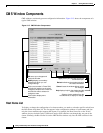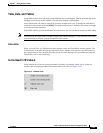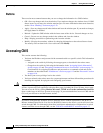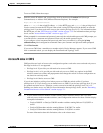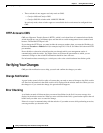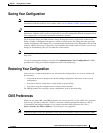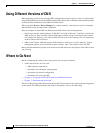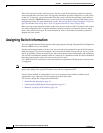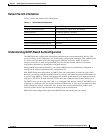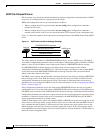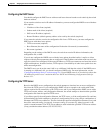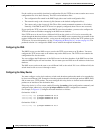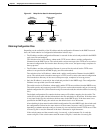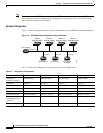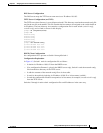
4-2
Catalyst 2950 Desktop Switch Software Configuration Guide
78-14982-01
Chapter 4 Assigning the Switch IP Address and Default Gateway
Assigning Switch Information
The boot loader also provides trap-door access into the system if the operating system has problems
serious enough that it cannot be used. The trap-door mechanism provides enough access to the system
so that if it is necessary, you can format the Flash file system, reinstall the operating system software
image by using the XMODEM Protocol, recover from a lost or forgotten password, and finally restart
the operating system. For more information, see the “Recovering from Corrupted Software” section on
page 28-6 and the “Recovering from a Lost or Forgotten Password” section on page 28-6.
Before you can assign switch information, make sure you have connected a PC or terminal to the console
port, and configured the PC or terminal-emulation software baud rate and character format to match
those of the switch console port. For more information, refer to the hardware installation guide that
shipped with your switch.
Assigning Switch Information
You can assign IP information through the switch setup program, through a Dynamic Host Configuration
Protocol (DHCP) server, or manually.
Use the switch setup program if you are a new user and want to be prompted for specific IP information.
With this program, you can also configure a host name and an enable secret password. It gives you the
option of assigning a Telnet password (to provide security during remote management) and configuring
your switch as a command or member switch of a cluster or as a standalone switch. For more information
about the setup program, refer to the release notes on Cisco.com.
Use a DHCP server for centralized control and automatic assignment of IP information once the server
is configured.
Note If you are using DHCP, do not respond to any of the questions in the setup program until the switch
receives the dynamically-assigned IP address and reads the configuration file.
Use the manual method of configuration if you are an experienced user familiar with the switch
configuration steps; otherwise, use the setup program described earlier.
This section contains this configuration information:
• Default Switch Information, page 4-3
• Understanding DHCP-Based Autoconfiguration, page 4-3
• Manually Assigning IP Information, page 4-10



